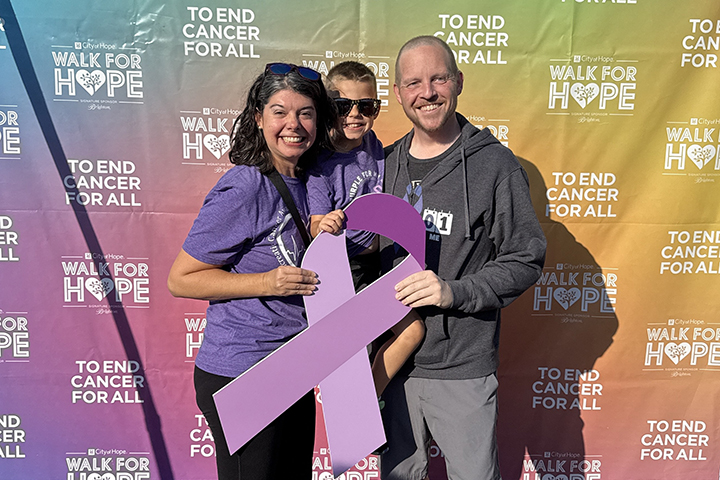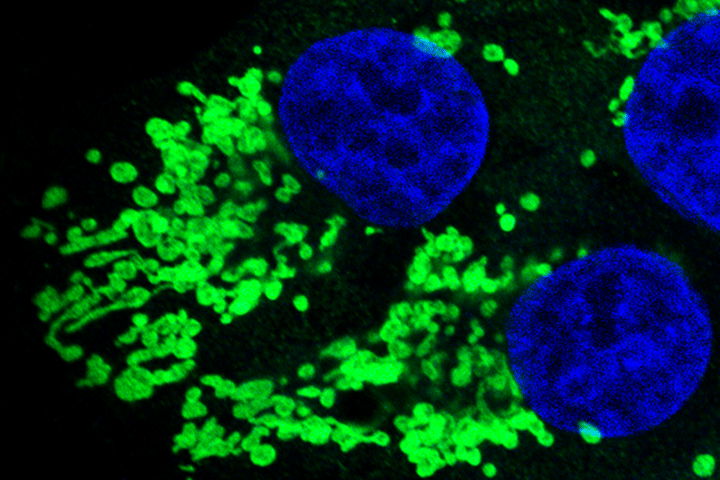Study Reveals Molecular Differences in Young-Onset Pancreatic Cancer

There has been an alarming rise of pancreatic cancer in people under the age of 50, especially in men and Black women.
Researchers are keen to determine if this population of young-onset pancreatic cancer (YOPC) patients harbors any particular genetic or epigenetic characteristics that set them apart from typical pancreatic cancer patients, who tend to be diagnosed around the ages of 65 to 70.
A collaborative study from researchers at Sylvester Comprehensive Cancer Center at the University of Miami (Florida) and Caris Life Sciences (Irving, Texas) has revealed interesting insights into this question, with potential implications for the clinical management of patients with YOPC.
The study, published in the ASCO journal JCO Precision Oncology in November of 2023, analyzed matched genomic-transcriptomic data from 2,430 pancreatic ductal adenocarcinoma patient samples in the Caris Life Sciences database, including 292 cases of YOPC and 2,138 cases that were typical diagnoses at age 70 or older.
The researchers studied molecular correlates driving the clinical disparities between these age-stratified cohorts, and discovered novel differences in the molecular landscape and immune microenvironment of YOPC.
What They Found
Key findings for YPOC patients include:
- Higher proportions of mismatch repair-deficient and microsatellite instability mutations
- A higher prevalence of mutations in DNA repair genes such as BRCA2 and PALB2, although it remains unclear whether these mutations are random (somatic) or inherited (germline) differences
- Significantly higher rates of non-mutated (wild-type) KRAS genes; keep in mind that 95 percent of pancreatic cancer patients have a KRAS mutation
Among the wild-type KRAS tumors, YOPC showed fewer TP53 mutations and were more likely driven by NRG1 and MET fusions. Typical-age pancreatic cancer patients with wild-type KRAS were exclusively found to have BRAF fusions.
YOPC tumors exhibited enrichment of specific immune cell subsets, including natural killer cells, CD8+ T cells, monocytes, and M2 macrophages, along with lower rates of HLA-DPA1 homozygosity, suggesting a less immunosuppressive and more immunostimulatory microenvironment. There was an association with improved overall survival in patients with YOPC compared to older patients with wild-type KRAS—but not KRAS-mutated—tumors.
The data also reinforced previously observed epidemiologic distinctions between patients with YOPC and typical-age pancreatic cancer patients. YOPC patients were more likely to be male and to be smokers.
Implications of the Study
Precision medicine is increasingly used to determine treatment for pancreatic cancer patients. There is a critical need to understand tumor-level molecular differences for YPOC patients, which might inform personalized therapy in their treatment. Oncologists treating YOPC patients with BRCA2 and PALB2 alterations might want to consider PARP inhibitors, for instance.
While many of the differences uncovered in the study were subtle, they are enough to warrant further studies and deeper dives into what’s going on in these different populations, especially if it means researchers can identify distinct molecular vulnerabilities in patients with YOPC that might be exploited therapeutically, says study co-author Jashodeep Datta, M.D.
“It has generated early signals for us to explore further, and highlights the importance of increasing the visibility and accessibility of next-generation sequencing for pancreatic cancer patients,” he adds. “We know from studies like the Know Your Tumor® project that matching patients with treatments based on their actionable mutations can lead to better outcomes.”
In addition to inspiring other scientists to expand upon the research to discover more about the distinctions between subsets of patients afflicted with this disease, Datta hopes the study results will also empower patients and clinicians to seek next-generation sequencing (NGS), a type of DNA testing, and incorporate it earlier in the pancreatic cancer arc. NGS testing is most commonly sought in the metastatic cancer stage, but Datta would like to see it increasingly adopted when tumors are in the localized stage and amenable to surgical resection.
“It is standard of care to pursue NGS testing in metastatic disease. However, our data and others’ suggests that we should be doing NGS testing routinely in the patients with localized disease,” he notes.





